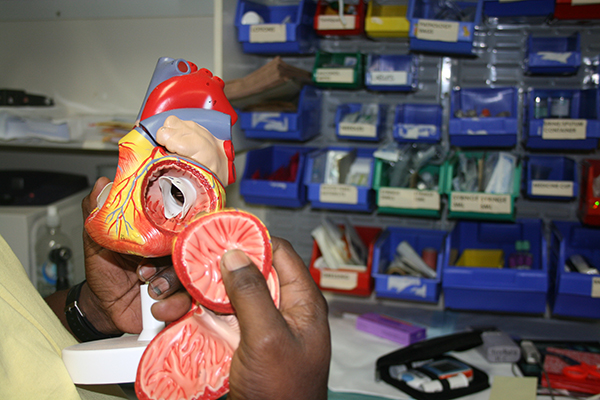Search
Research
A community-based program to reduce acute rheumatic fever and rheumatic heart disease in northern AustraliaIn Australia’s north, Aboriginal peoples live with world-high rates of rheumatic heart disease (RHD) and its precursor, acute rheumatic fever (ARF); driven by social and environmental determinants of health. We undertook a program of work to strengthen RHD primordial and primary prevention using a model addressing six domains: housing and environmental support, community awareness and empowerment, health literacy, health and education service integration, health navigation and health provider education.
Research
Environmental and social determinants of acute rheumatic fever: a longitudinal cohort studyPrevention strategies in ARF endemic settings may be enhanced by targeting new members entering a community and children in environments of close contact
Research
Community-based participatory action research on rheumatic heart disease in an Australian Aboriginal homeland: Evaluation of the ‘On track watch’ projectBased in 'both-way learning', the aim of this study was to co-design, implement and evaluate community-based participatory action research to achieve this vision
Research
Understanding group A streptococcal pharyngitis and skin infections as causes of rheumatic fever: Protocol for a prospective disease incidence studyThis study will identify the incidence of true Group A Streptococcal pharyngitis and serological responses to Group A Streptococcal GAS skin infections


People
Dr Janessa PickeringDr Janessa Pickering is a research microbiologist with expertise in the molecular diagnostics and host pathogen interactions of upper respiratory tract pathogens that cause disease in children.

News & Events
The Kids takes fight against one of the world’s deadliest bugs to national stageLast night, almost 60 supporters gathered at Adelaide Town Hall for the inaugural The Kids Research Institute Australia Adelaide Lecture, Not Just a Sore Throat: The Race to Stop One of the Deadliest Bugs on the Planet.

News & Events
Preventing RHD through community-driven activitiesHealth activities driven by remote Indigenous communities may be key to the sustainable and successful treatment and prevention of a potentially fatal disease, a study has found.

News & Events
The Kids Research Institute Australia researchers finalists for 2016 Eureka PrizesThree Perth researchers from The Kids Research Institute Australia have today been named finalists for the 2016 Australian Museum Eureka Prizes.

News & Events
New Rheumatic Heart Disease CentreThe Kids Research Institute Australia is proud to announce the launch of a world class Centre of Research Excellence in rheumatic heart disease (RHD).
